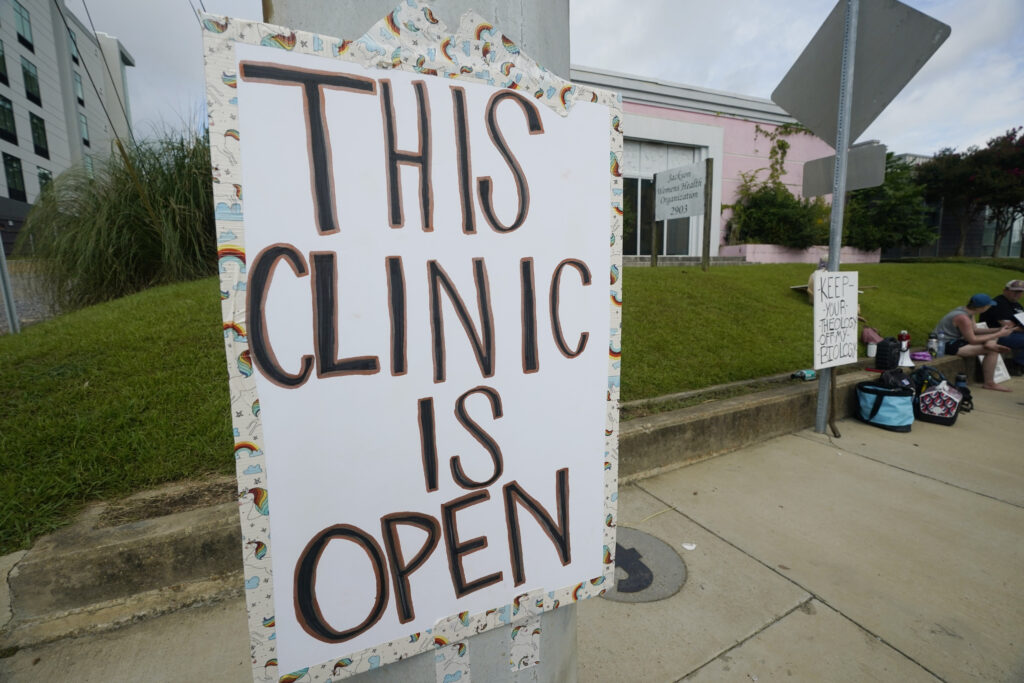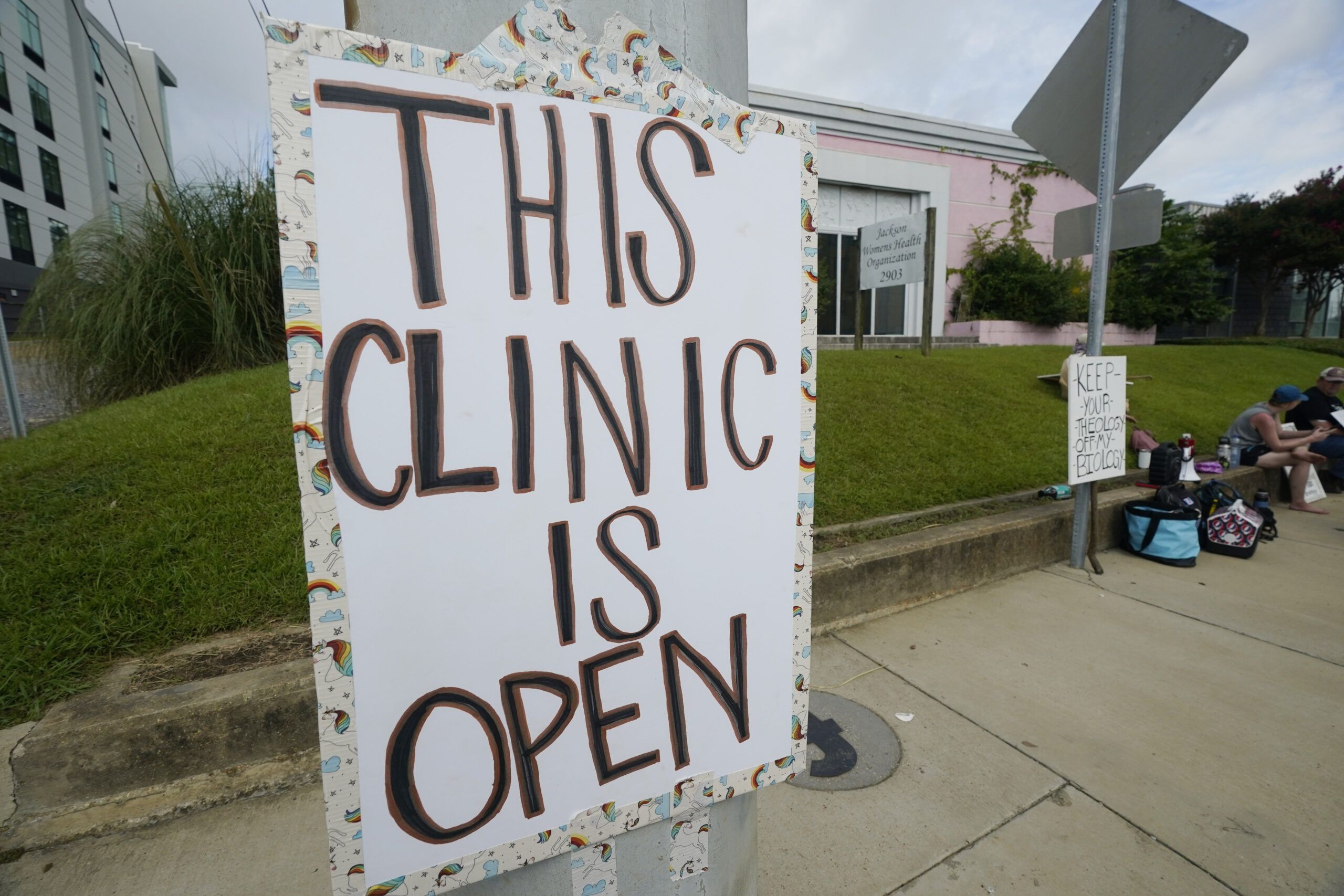The Supreme Court decision in Roe v. Wade has criminalized the reproductive choices of America’s women. The Court’s June 2022 decision not only puts women in the crosshairs of possible justice system involvement because they decide to seek abortion, it also places women in the perilous position of choosing between the wrong side of the law or having an unwanted birth in many states. We might be creating an abortion-to-prison pipeline in America.
For example, more than a year after the Court overturned Roe v. Wade, state legislatures are proposing laws that criminalize abortions. According to the ACLU report “Criminalizing Abortion Care is Wrong, We’re Fighting Back,” bans and laws can target patients and those who help them obtain necessary medical services.

The trend toward criminalizing abortion is becoming more real. Most recently, Alabama Attorney General Steve Marshall, a Republican, said he will prosecute those who aid the travel of women seeking an abortion out of state. We are approaching the frightening reality that we will normalize prosecuting women seeking an abortion in many red states.
And among all groups of women who seek abortions, Black women would be the group most affected. Non-Hispanic Black women make up 39 percent of all women seeking abortions, according to the Centers for Disease Control and Prevention and Pew Research.
Like everything else in our society, disparate treatment based on race is possible. This pending social dilemma reminds me of the disparate treatment of crack-addicted pregnant Black women in the late nineties. My late wife, Jacqueline Berrien, former chair of the Equal Employment Opportunity Commission (EEOC) in the Obama administration, wrote a piece for Yale Law Journal on feminism titled “Pregnancy and Drug Use: The Dangerous and Unequal Use of Punitive Measures.” She wrote, “Prosecutors across the country have attempted to prosecute women who have given birth to infants testing positive for illegal substances.” This attack on the reproductive rights of substance-abusing women provides a prism on how trigger states will treat women attempting to abort.
Even more insidious is the potential of the disproportionate treatment of Black women. For example, a study conducted by the National Association for Prenatal Addiction and Research and Education in the state of Florida found white women were more likely to test positive for alcohol, marijuana, cocaine, and opiate use during pregnancy than Black women, but that Black women were 10 times more likely than white women to have their positive toxicology results turned over to government officials. This finding means Black women are 10 times more likely to be prosecuted for substance use while pregnant than white women. The crack era provides a crystal ball for the unequal treatment women of color may receive in many trigger states.
RELATED: Grand jury in Ohio opts not to indict woman who miscarried in her bathroom
Even before the Roe v. Wade reversal, states have prosecuted women for self-induced abortion. In the Guttmacher Policy Review, Andrea Rowan writes that several women in the United States have been prosecuted for self-induced abortion under various state statutes, ranging from fetal homicide to failure to report an abortion to the coroner, since the Roe v. Wade reversal. For example, Rowan writes, “Thirty-eight states including Utah allow a person to be charged with homicide if she or he is deemed responsible for the unlawful death of a fetus, and not all of these laws clearly exempt the pregnant woman herself from being charged.”
The Court’s decision may speed up self-inducing abortions by many poor women and women of color who may not have any other alternative, further criminalizing women.
The Court’s decision has opened the door for further criminalizing reproductive rights. A report titled “13 States Have Abortion Trigger Bans-Here’s What Happens When Roe Is Overturned” by Guttmacher revealed 13 states have laws in place designed to be “triggered” and take effect through prompt state action if Roe v. Wade no longer applies. For example, Kentucky enacted into law 2019 legislation that provides for a 4 Class D felony penalty to anyone who provides for or attempts an abortion. Louisiana has enacted harsher penalties too for such situations. The Louisiana law approved in 2006 could cost anyone involved in abortions up to 10 years in prison.
MORE FROM PETER M. WILLIAMS: Eyeing Juneteenth bill passage with skepticism
More worrisome, 44 states prohibit some abortions after a certain point in pregnancy. These states follow the trend and mandate felony punishment for those involved in providing abortion within the jurisdiction. With the likelihood of increased use of self-induced abortions, more women are in danger of justice system involvement.
A piece in The Texas Tribune reveals that 40 percent of the women who get abortions in the United States are Black. According to the Texas Tribune piece, Black women experience a 30 percent or more increase in maternal mortality rates. The overturning of Roe v. Wade is not only an affront to women’s reproductive rights but also criminalizes women’s choices. This decision is the ultimate act of white male supremacy in America. This is a sad period in our democracy, but I hope it is a call to all Americans that elections do matter. It also signifies that we must turn out in substantial numbers in the 2024 election cycle to have representation in Congress to codify Roe v. Wade and prevent the mass incarceration of women seeking an abortion.
Peter M. Williams is an educator at Harvard University and Medgar Evers College, and a 2021 Harvard Advanced Leadership Initiative Fellow. He is former executive vice president for programs for the NAACP and former director of housing and community development with the National Urban League.








